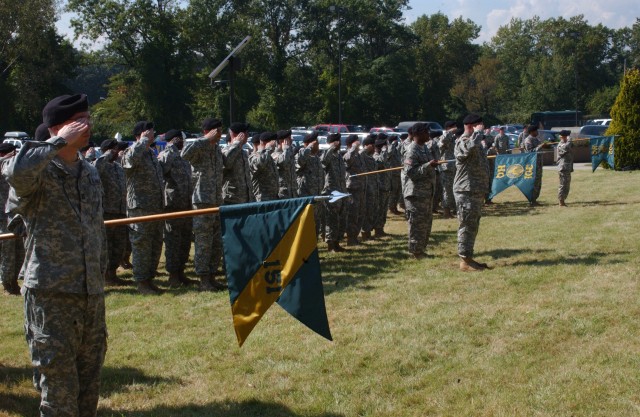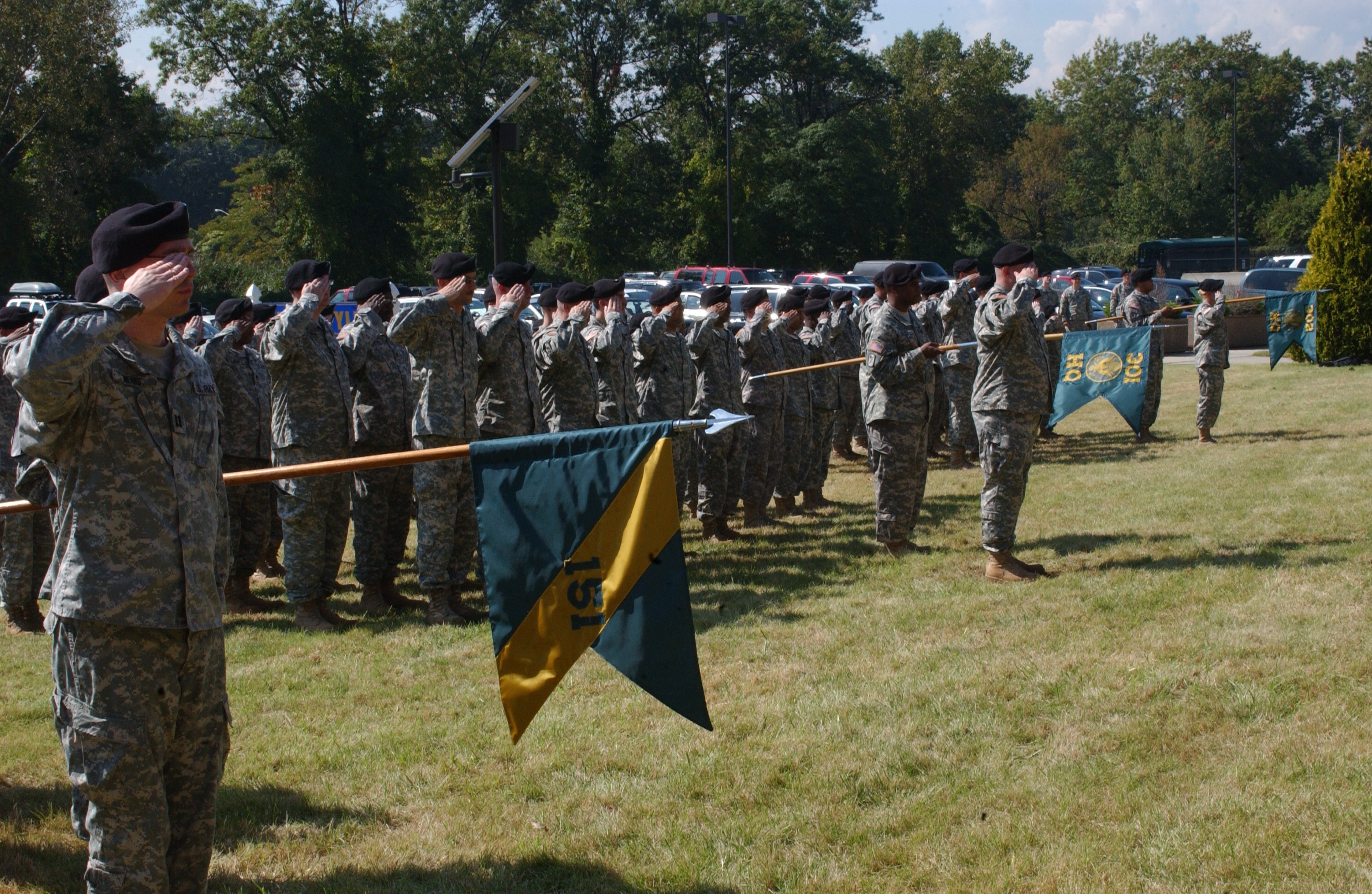FORT TOTTEN, N.Y. (Oct. 6, 2009) -- "It's a whole different Army now. It's a different fight, and Information Operations paints the battlefield in what people believe, what they think," said Col. Calvin DeWitt, during his speech as he assumed command of the newly activated and one-of-a-kind Army Reserve unit -- the 151st Theater Information Operations Group at Fort Totten.
The launch of the 151st, the first unit of its type, will enhance the overall Army Reserve mission, according to DeWitt. The mission objective is to gain, maintain, and control the information environment on the battlefield by synchronizing related capabilities comprised of five core functions: electronic warfare, military deception, psychological operations, operational security, and computer network operations.
"This is the first Army Reserve unit to integrate all of these skill sets to perform this mission," said DeWitt. "This war will be won by men and women who engage and influence populations with computers, psychological operations, electronics, and the media. In this day and age, this is a mission where the Army must be effective."
The initiative originated from Gen. David Petraeus, current commander of U.S. Central Command, and the architect behind the success of the "surge" in Iraq. It was Petraeus who emphasized that the Army needed to focus on influencing foreign civilian and governmental populations, especially in a counter-insurgency environment. That need, said Dewitt, started on Sept. 11, 2001, in lower Manhattan's financial district, just a half hour drive from the 151st's new headquarters at the Ernie Pyle Army Reserve Center in neighboring Queens.
The 151st supports contingency operations around the world with primary support to the European Command and the Africa Command. In the future, 151st deployments will usually occur in teams of five to 10 soldiers. Those teams will represent various core competencies and be tailored to the particular mission requirement.
Maj. Gen. Mari K. Eder, commander of the U.S. Army Reserve Joint and Special Troops Support Command, Salt Lake City, Utah, addressed the troops during the activation ceremony and reminded them of their important role in the Army's future and in "the information operations revolution." Eder's command serves as the higher headquarters for the 151st.
"To see a unit that stands up and activates ... to see new traditions begin ... new missions begin to form, I think it's a great day and a bright day for our future," said Eder. Countering the ideological support of terror by utilizing every aspect of information in this modern information age is why the activation of this unit came about," she said.
"From what I have seen I know any challenge can be met by the soldiers in this unit," said Eder. "They're greatly trained, greatly experienced and ready to take on the challenges of this revolution in information."
DeWitt, who will now travel from Lawrence, Kansas, to command the 151st, said the biggest challenge thus far in standing up the unit has been recruiting and training over 150 new positions for the headquarters element and two subordinate battalions, which are also located at Fort Totten.
Ultimately, he hopes to recruit against the authorized strength of more than 300 Soldiers. DeWitt, who previously commanded a Psychological Operations company in Iraq, is an instructor of the Army's Information Operations Officers Qualification Course at Fort Leavenworth, Kan. He has been using his experience to lead his new soldiers in a new direction.
One of these new Soldiers is Pfc. Thina Ngin, who has been in the Army for three months. She was only 12 years old on Sept. 11, 2001, but was sitting in school in New York City when World Trade Center towers were hit. She could see the smoke billowing out of the structures from the window of her school.
"September 11th didn't really impact me at the time, I was only a kid," said Ngin, who serves as a local area network manager in the 301st Information Operations Battalion, a subordinate unit of the 151st. "I never thought I would join the military. But as I got older I wanted direction in my life. And I looked to the Army for that direction." Her spirit is indicative of many of the troops in the unit, who just have a desire to serve country during a difficult period in its history, but bring a wealth of technical skills and savvy to the mission, having grown up in this information revolution.
"Today we have Soldiers who were 10 years old when terrorists attacked New York City. They are standing where other Soldiers have stood, prepared to do their part in a war that may go on for years." said DeWitt. "These Soldiers will be fighting an enemy our predecessors never considered -- with capabilities they couldn't have imagined."
"The truth is the nation needs a new breed of Soldiers able to reach out to the populations of the Afghanistan, the Horn of Africa, and Iraq. And as of today we stand ready to answer that call," he said.
The 151st TIOG unit crest displays the Twin Towers with a banner that reads in Latin "Nos Memor-- We Remember." And as the 151st TIOG crest reminds us -- especially those who serve this country -- that we as Americans should always remember.


Social Sharing